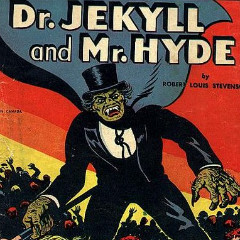
While I get the sentiment, I reject the thought. Admitting sin and identifying with it are two very different things. The first is something we all must do. If there is one scripture I recall my dad reciting in his prayers over and again it was the line from Romans 3: “for all have sinned and fall short of the glory of God.” It’s an ontological fact, courtesy of that disaster in the Garden and our own propensity for perpetuating the mess. But it’s also conditional, relative to Christ’s saving work in our lives.
Because of that work, says Paul in Romans 7, “it is no longer I who [sin], but sin that dwells within me.” He makes a clean break between his identity and his actions. As the rest of the chapter shows, Paul is quick to confess his faults—he wrestles and grapples and admits his frustrations with them—but he refuses to identify with them. Sin lives within Paul, but Paul is not his sin. In making his admissions, he is not “finally being true to himself.” He is explaining what he calls the strength of his “old nature.”
That is because Paul and all of us, including the person who started this reflection, is a new creation. Our ontology has been overhauled, changed, re-created, reborn. We have a new nature. Because of our participation in Christ’s incarnation, crucifixion, and resurrection, we are now in him. Constituted in the church, believers are the body of Christ. We are to mature into Christ. We are to grow in the image of Christ. Our identity is in Christ.
People once had a better understanding of this connection between faith and identity. Traditionally, Christians followed the Jewish practice and named their children at their initiation into the covenant—Jews at circumcision, Christians at baptism. This usually happened when the child was only a few days old. Christians “christened” their children, giving them their “Christian name,” every participant from the parents to the pastor to the people in the pews all confessing that these children are now part of Christ’s body and find their identity in him.
This vision of life swerves dramatically from any pronouncement that links sin and self-recognition and self-acceptance. The moment we sin and say, “That’s just who I am,” we have said a horrible lie about ourselves and Christ. When we see sin in our lives, we do not recognize ourselves; we see our enemy. When we find sin in ourselves, we do not reconcile with it; we reject it. Our sin is not something with which to get comfortable. Our sin is the measure to which we must still grow and mature into the image and likeness of Jesus, which is our primary occupation in this life.
That growth and maturation happens through many different means and down several different paths, not least our trials, temptations, and struggles. The battles with our old nature are what bring perfection to our new nature. So whatever else it might be, giving into sin is forfeiting an opportunity for holiness.
Every sin we face is a chance for us to grow in grace. This is why James tells us to “Count it all joy . . . when you meet trials of various kinds, for you know that the testing of your faith produces steadfastness. And let steadfastness have its full effect, that you may be perfect and complete. . . .” Don’t waste your sins by giving into them.
Perhaps we face a very powerful sin, over which we struggle to gain the least bit of victory. Rather than capitulate, we should consider that sin—whatever it might be—as a defining battle of our sanctification, our cross to bear, one that may mark our lives until the grave but a fight that we must engage nevertheless. It may not seem like it in the moment, but the victory is ours in Christ because our identity is the same place.












